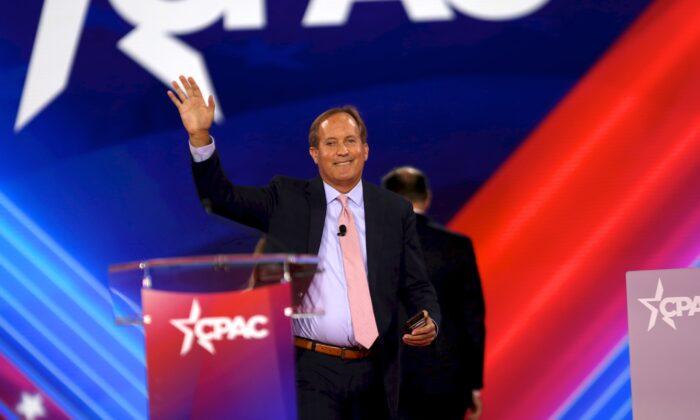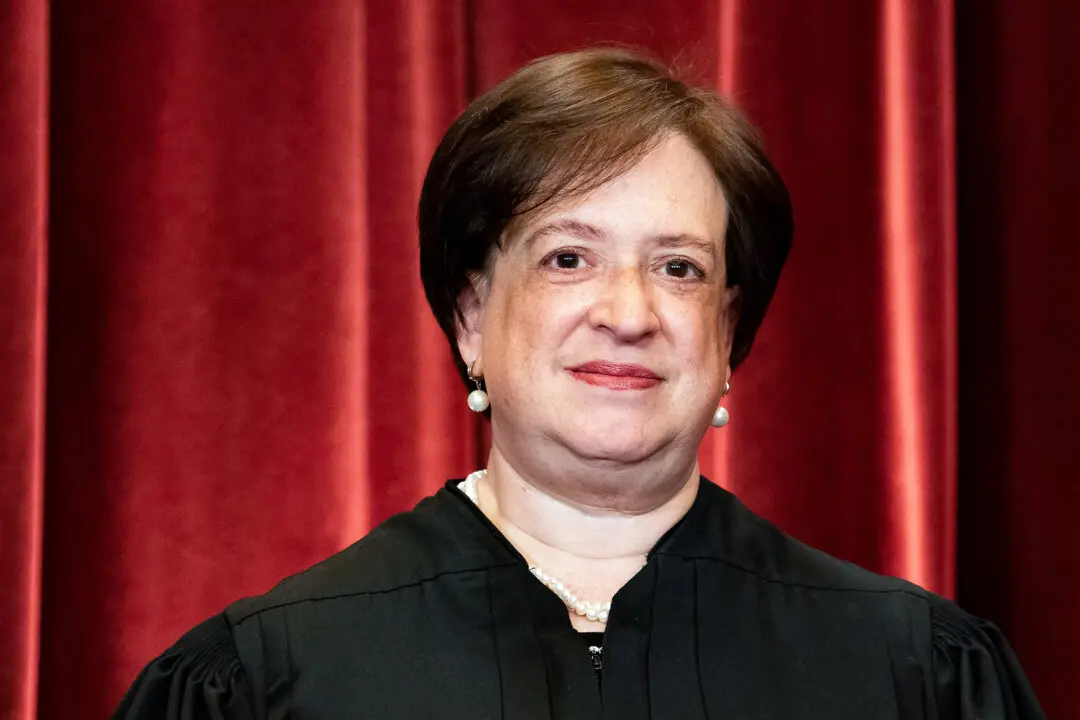A federal judge in Texas struck down a federal guidance exempting LGBT employees from workplace policies on bathroom use, dress codes, locker rooms, and pronoun usage.
A U.S. Equal Employment Opportunity Commission (EEOC) policy document from June 2021 overreached in its interpretation of the Supreme Court’s ruling forbidding employment discrimination based on sexual preference and gender identity, Judge Matthew Kacsmaryk of the U.S. District Court for the Northern District of Texas found. Texas sued over the guidance.
Texas Attorney General Ken Paxton, a Republican, praised the ruling in a statement on Oct. 6.
Paxton amended the state’s lawsuit 7 months ago to include the U.S. Department of Health and Human Services (HHS) after the agency issued new rules to guarantee access to so-called gender-affirming health care for transgender young people. The HHS policy came after Texas Gov. Greg Abbott, a Republican, directed state agencies to initiate child abuse investigations of some families with transgender children, and after Paxton said such care can constitute abuse under state law.
“The court decision is not only a win for the rule of law, but for the safety and protection of Texas children,” said Paxton.
“The Biden Administration’s attempts to radicalize federal law to track its woke political beliefs are beyond dangerous. I will continue to push back against these unlawful attempts to use federal agencies to normalize extremist positions that put millions of Texans at risk.”
Two conservative members of the court, Justice Neil Gorsuch, who wrote the majority opinion, and Chief Justice John Roberts, joined the four liberals then on the court by voting to expand the meaning of the word “sex” in the Civil Rights Act of 1964 to include sexual orientation and gender identity. While Title VII of that federal statute from the Civil Rights Era prohibits employment discrimination based on race, color, religion, sex, and national origin, it doesn’t mention sexual orientation, preference, or identity.
When pressed “to expand the Title VII analysis and definition of ‘sex’ beyond mere status to reach a ‘broader scope’ of conduct, Justice Gorsuch expressly declined,” Kacsmaryk wrote.
The EEOC is still in court over a 2021 lawsuit against its expansive guidance brought by 20 states. In July, Judge Charles Atchley of the U.S. District Court for the Eastern District of Tennessee, temporarily blocked the enforcement of the directive in states suing the EEOC. Atchley was also appointed by Trump.
In October 2021, Judge Reed O’Connor of the U.S. District Court for the Northern District of Texas, ruled that the First Amendment and the federal Religious Freedom Restoration Act can shield Christian-operated businesses from LGBT bias liability under Title VII. Reed, who was appointed by then-President George W. Bush, also determined that churches and religious groups can succeed in LGBT bias lawsuits by invoking the religious organization exemption in Title VII.
The Epoch Times reached out for comment to the U.S. Department of Justice but had not received a reply as of press time.





